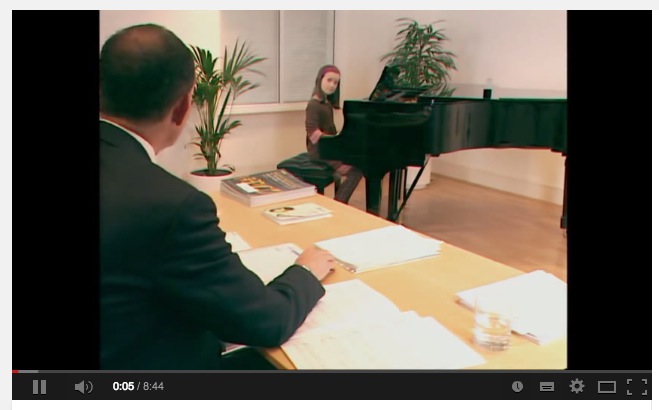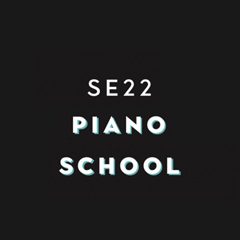Here is lots of information for students that are starting a graded ABRSM exam. We hope you find it useful!
1) How Long To Prepare
Once you have successful completed the Prep Test, you will be ready to start working towards Grade 1. It takes around one year (minimum) to prepare fully for each level of examination. This is presuming you are putting in 30 minutes practice a day (see below).
2) Recommended Daily Practice time
Around 30 minutes for Grade 1, increasing to 2 hours a day for Grade 8. This is the time required to cover the three pieces, scales, sight-reading and aural.
3) Scale Practice Charts
These are available for Grade 1 to 4. Please ask your teacher if you have not already received these.

4) Online Aural Tests
These can be practised from the first lesson and are part of your 30 minutes a day practice session. You can even start working on these whilst you are on the Prep Test.
http://e-musicmaestro.com/auraltests/ www.hofnote.com
5) Sight Reading books
Before you start on the Specimen Grade 1 tests, try out these books first:
Joining the Dots
http://www.musicroom.com/se/ID_No/0706345/details.html
Improve Your Sight-Reading:
http://www.musicroom.com/se/ID_No/0449805/details.html
6) Beat the Nerves and Perform in Public
Many students lots of marks on exam day because they are too nervous and not used to performing under pressure. We offer the yearly student recital around Christmas for our pianists and also the Dulwich Piano Festival in June. This allows you to try out some or all of your pieces in readiness for your exam. You receive exam-style feedback and with each performance, you feel more confident and ready for the exam. Students that have not played at least once in public will not be advised as ready for an exam as past experience shows significantly lower results for students that struggle with nerves. We also have our annual student piano recital that takes place in December. You should be able to learn one graded exam piece per term so we advise all students working on graded exams to participate and play one exam piece at least.
7) Read all about the Exam process
This is a comprehensive document about exams. All parents must read this before embarking on the exam process:
http://gb.abrsm.org/resources/theseMusicExams0607.pdf
8) Breakdown of the Marking Criteria:
http://www.se22piano.co.uk/pass-merit-or-distinction-how-examiners-mark-your-abrsm-music-exam/
9) Daily Practice Guide
How you should be practising about 5 months before the exam:
http://se22pianoschool.wordpress.com/2012/05/18/daily-practice-guide-to-prepare-for-your-abrsm-exam/
We have two exam sessions in March and November. The deadlines for entry are the beginning or January and September.
11) When Will I Enter?
It is your teacher’s decision to enter you when you are ready. If you are aiming for an exam session but not well prepared, we will not enter you. It is our decision to enter students when we feel they well-prepared and playing to the best of their ability. Here is the criteria we use to assess readiness:
http://www.se22piano.co.uk/preparing-for-summer-piano-exam-entry/
12) Mock Exam
All students must sit a Mock Exam before the deadline for entry which is approximately 6 weeks before the dates in section 10. If you do not pass, then we will not process your exam entry and you will wait until the next session. We do not consider it reasonable to enter students that may fail an exam.
13) Where are the Exams?
The exams are held in Camberwell near King’s College Hospital.
14) Choosing a New Exam Date
You can call the Exam Board and see if there is an alternative date available if the one given is not suitable. 020 7636 5400
15) When is the Exam?
During the day on weekdays during school hours usually. Weekends are not offered.
16) Making the Entry
You can enter yourself online using the SE22 Piano School account. Details of this will be given to you at the time of passing your mock exam including a step-by-step guide. This allows you to log on and check your allocated exam date and also your result.
17) Allocation of Dates
These are allocated approximately 2 weeks before your actual exam date. Your teacher will pass this on as soon as it is received, or you can log onto the exam control panel and check.
18) Results
These are allocated approximately 2 weeks after your exam date. You can log onto the exam control panel and check for results any time after your exam. We do not know when they will be posted online. View our latest results online: http://www.se22piano.co.uk/exam-results/
19) Starting the Next Grade
If you receive a low mark such as 100 – 115 out of 150, we will not consider you ready for the next grade and consolidation will be required on the areas marked as the examiner as needing attention. Once you can improve these areas, we are happy to move you onto the next grade. Ask your teacher for details of books required. We always advise learning fun pieces inbetween grades to build up sight-reading skills.
20) Syllabus Validity
The new syllabus has just been published and is valid until March 2017.
21) Watch an Actual Grade One examination


